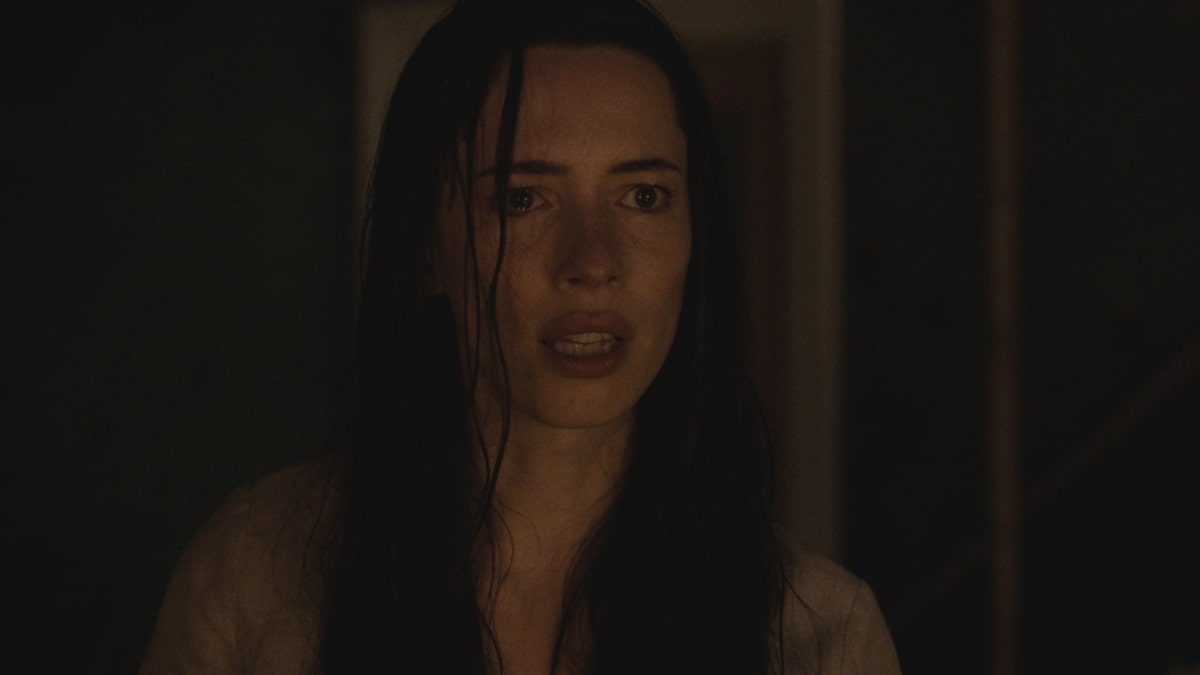
Grief is a common theme explored within the horror genre. It can be seen all throughout spiritual horror because it makes the viewer want to believe something comes after this crazy life. The Night House flirts with this theme but has something on its mind about mental health as well.
Similar to The Babadook, director David Bruckner has found a way to use terror as a metaphor for sadness.
The film that originated as a Sundance darling is finally due out this weekend. Should audiences flock to see it upon release?
Here is our review of The Night House.
The Night House review
The film centers on Rebecca Hall as Beth, a teacher whose husband Owen (Evan Jonigkeit) recently committed suicide, leaving her isolated in a lake house he built for them. As we are introduced to Beth, she is the embodiment of what most grieving victims would describe as “numb.”
She throws food from family and friends in the trash, she has nothing but apathy for parental complaints about her students, and she is blunt about her thoughts to an understandable extreme.
It’s not too long after Owen’s death that things begin to get strange at night (and sometimes during the day). She wakes up to knocks and strange noises. And she begins to walk in her sleep.
Once these happenings begin to intensify, she notices it might have to do with her husband’s death (or maybe it is Owen himself visiting her). This leads her down a path of discovering things about her home and marriage–for better or for worse, in her case.

Hall has always been a tremendous actress in every film she is blessed to join. The Night House continues this trend for her as she spends the majority of the film selling the fear, heartbreak, and anger that comes with grief without even breaking a sweat.
There is a look of despair that she does with her eyes in one scene that this reviewer has not stopped thinking about since the film ended.
By the time the film wraps, she will undoubtedly be the one aspect of this movie that everyone talks about, and any recognition she gets from this film — big or small — is entirely earned.
Complainers of The Night House will argue the film takes similar narratives of other horror films like What Lies Beneath. The common story approach of, “Is my husband a monster or not?” type of movie.
In some respects, the film does borrow similar suspense methods from What Lies Beneath. A wife who is mostly alone in her house while things move mysteriously and music randomly plays while Michelle Pfeiffer tries to make sense of it.
On the surface, that is a decent nitpick, but there is so much more to The Night House than recycled thrills.
For one, the technique used to communicate the appearance of a haunting is anything but conventional. The art design created to show us the haunting can only be described as architectural horror.

When it appears, it’s like a trick of the eye, showing different parts of the home — a wall, a kitchen counter, or an entryway — all form together as a shape of a person. This makes us question along with Beth if something is actually there or is it just in our minds.
Another feature that makes it rise above these complaints are the strong themes sprinkled throughout The Night House. Screenwriters Ben Collins and Luke Piotrowski did not just make a ghost story.
From a completely different vantage point, The Night House can be seen as a horror film about battling depression, and the constant warfare one wages with it in marriage, life, and in the midst of grief. Honestly, it is rare to feel moved by a horror film but if that was the intention, the message is truly authentic and powerful.
The Night House also utilizes my favorite type of horror and it’s the one that tugs at the heart. Director David Bruckner carefully introduces small character details that add emotional depth but are also used as mechanisms of fear later. A method director Mike Flanagan did incredibly well with this on The Haunting of Hill House.
Should you watch The Night House?
It might feel conventional at first but the longer The Night House sits with the viewer, the more it will impact them. This is a complex film that has so much on its mind about mental health struggles and the horrors of living with a mental illness.
All of this in conjunction with Rebecca Hall’s fierce and heartbreaking performance leads The Night House to become more than just suspenseful entertainment but also a thought-provoking genre exercise.
Simply put, see this movie in any format offered.
Readers who are looking for more films to potentially see in theaters or at home, check out our reviews of Free Guy and Snake Eyes: G. I. Joe Origins.